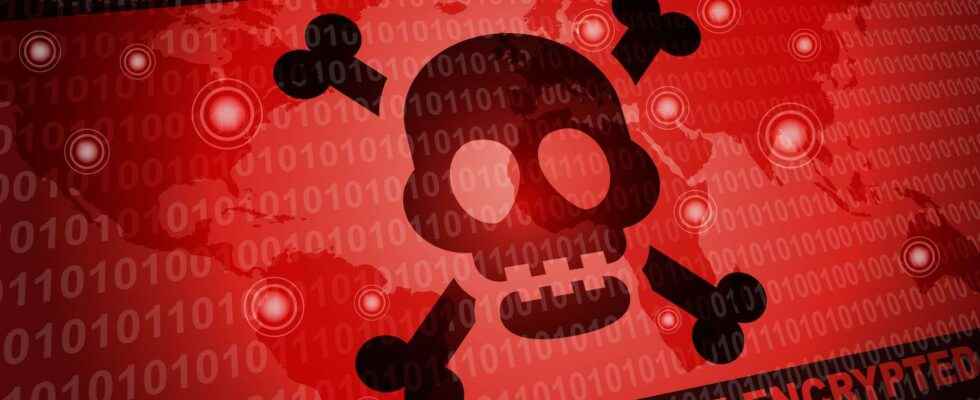Ransomware also known as “ransomware” is malware that can block access to a computer, a mobile phone or encrypt personal data. The goal ? Claim a certain amount ofmoney to unblock the malware.
Ransomware and Cybercrime
This method of cybercrime aims to extort money from the victim in exchange for unlocking their machine or decrypting their data.
This practice, which is reminiscent of a virtual hostage-taking, continues to develop. In 2014, the security solutions publisher Symantec published a report indicating an increase in annual of 113% of the number of ransomware.
But another more recent document, published this time by the National Information Systems Security Agency (ANSSI), mentions an increase of 255% between 2019 and 2020!
ANSSI even mentions the anticipation of hacker groups to prepare the targeting of institutions or important companies with a view to demanding a very high ransom. To increase the pressure, some hackers also threaten to publicly disclose the hostage data. This is called double extortion, as ANSSI reminds us. The loot collected is several hundred thousand euros and can even reach a million. On the one hand, it allows hackers to be remunerated, but also serves as an “investment fund” to set up ransomware ever more developed.
The spread of ransomware
Ransomware is distributed in the same way as viruses, namely through an email containing attachments or links to tricked websites. Some ransomware based on the CryptoLocker virus encrypts data, others run an application that will modify the registry of the host computer’s operating system to lock it.
Businesses and institutions (local communities, health establishments or even public authorities, etc.) are particularly affected by these attacks. In the professional context, these incidents cause a temporary stoppage of the activity and a very important financial loss. Going as far as discrediting their customers when it is companies in the digital sector that are targeted.
However, individuals are also targets for criminals …
Smartphones and tablets also targeted by ransomware
You would think only computers are affected by this malware. But on mobile terminals of type smartphone, ransomware is often hidden in pornographic or bogus applications. anti-virus which are downloaded by the Internet user outside of official channels – so many uses that may present risks in terms of security of smartphones.
Mobile applications, with a higher proportion for those of devices Android, activate malware sophisticated and tenacious. For example, an app dedicated to tracking Covid-19 in Canada hid the CryCryptor ransomware and launched data encryption on mobile devices as soon as it was activated.
Thieves can also create deceptive web pages promising pirated or adult content. They play on the feeling of guilt and the fear of the gendarme by posting a message from an alleged government agency (FBI, Hadopi, national police …). The victim is ordered to pay a fine by transfer, SMS surcharged or a PayPal-type transaction service.
Guard against these malicious attacks
No risk does not exist. Especially in matter digital where the slightest security breach (lack of update, connection to a Wireless public …) can become an open avenue for piracy. However, a few of these tips can help you limit ransomware exposures and protect your devices and data:
- Beware of phishing : this practice, which is also called phishing, consists of pretending to be recognized entities, for example the tax service or an administration. The risk is to click on the indicated link thinking that it is indeed an important message.
- Increase data security: whether by using more complex and unique passwords for each account or by favoring two-factor authentication. By choosing a password too short (or which includes indications on your private life) is a real playground for hackers who will have no trouble revealing all your accesses.
- By choosing high-performance security tools: the use of firewall, antivirus and even VPN secures your connection and reduces intrusion attempts on your computer devices.
- Train in cybersecurity can also be an asset in the company to prevent possible security breaches on a daily basis and provide concrete solutions. Awareness and diffusion information about these cyber threats is essential to protect yourself as much as possible against attempts!
You will also be interested
Interested in what you just read?
.
fs2
